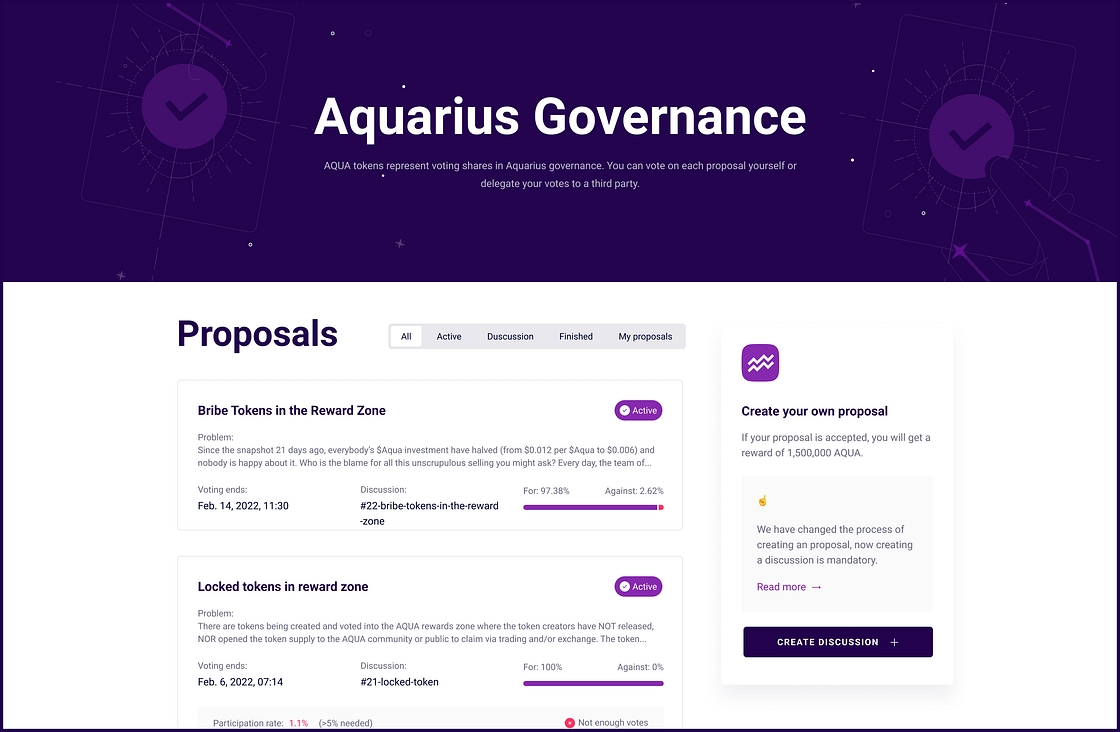❔How to use Aquarius Governance

Aquarius Governance enables AQUA holders to shape the protocol through proposals and voting. Anyone can submit a proposal for community voting, but keep in mind that proposals lacking clear benefits for the Aquarius or Stellar ecosystem are unlikely to gain support.
Proposal Process
Proposals go through two key phases before voting:
1️⃣ Discussion Phase (7 Days)
A mandatory 7-day discussion period takes place primarily on the Aquarius Discord server.
Proposal creators gather community feedback, refine their ideas, and decide whether to proceed, edit, or abandon the proposal.
2️⃣ Publication Phase (Up to 30 Days)
After the discussion phase, creators can immediately publish the proposal for voting or continue refining it for up to 30 days.
Each edit resets both the 7-day discussion and 30-day publication window.
If a proposal is not published within 30 days of its creation or last edit, it will be marked as finished.
💲 Fees & Rewards
Creating, editing, or publishing a proposal requires AQUA fees:
Creation: 100,000 AQUA
Editing: 100,000 AQUA (per edit)
Publication: 900,000 AQUA
Fee Mechanism:
All fees are sent to the AQUA issuer wallet, effectively burning them and creating a deflationary effect.
Fees ensure proposals are well-thought-out before moving forward.
Proposal Rewards:
If a proposal reaches quorum (5% participation) and receives over 50% "For" votes, the creator earns a 1.5 million AQUA reward.
This covers the 1 million AQUA spent on creation & publication fees, plus a potential 500,000 AQUA bonus if no edits were made.
✅ Validity & Quorum
To become valid, a proposal must reach a 5% quorum of the current circulating AQUA supply.
Example: If the circulating supply is 2 billion AQUA, at least 100 million AQUA votes (5%) must be cast for validity.
A proposal with 100% "For" votes but less than 5% participation is automatically rejected.
This system ensures that only widely supported proposals move forward, preventing low-interest changes from being implemented.
Last updated